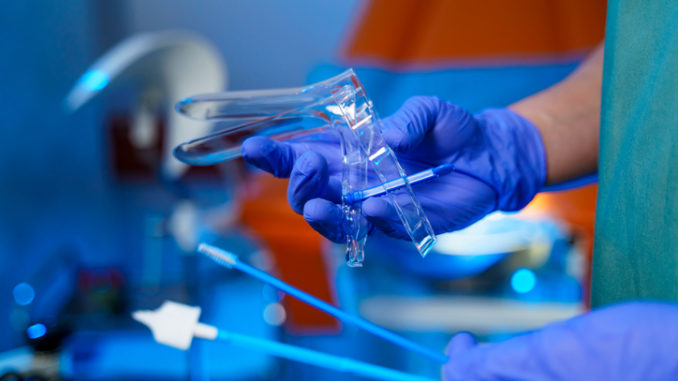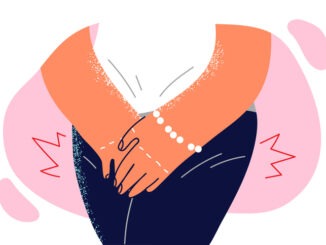
As reported by BBC news, smear-test delays during lockdown have prompted calls for home-screening kits
Cervical cancer screening has restarted across the UK – but some women say they will not attend their appointments for fear of catching COVID. Jo’s Cervical Cancer Trust is urging “faster action” on home tests for HPV, which causes 99% of cervical cancers. An NHS official said GP practices should continue screening throughout lockdown, and “anyone invited for a cervical smear test should attend”.
Cancer Research UK said it was not yet known how effective and accurate self-sampling could be in cervical screening. Screenings in Scotland, Wales and Northern Ireland have restarted after being halted during the first lockdown. In England, the NHS told GPs and clinics not to halt smear tests – but, as the prime minister heard last week, some patients were experiencing cancellations and long waiting times.
About 600,000 tests had failed to go ahead in the UK in April and May, Jo’s Cervical Cancer Trust said, in addition to a backlog of 1.5m appointments missed annually. A survey by gynaecological cancer charity the Eve Appeal indicates nearly one in three missed smear tests are the result of people being “put off” by coronavirus. And a Jo’s Cervical Cancer Trust survey during the pandemic suggests the same proportion would prefer to take their own human-papillomavirus (HPV) test rather than go to a GP.
Acting chief executive Rebecca Shoosmith said coronavirus had added “more barriers” to going for a smear test.
“Sadly those who found it difficult before are likely to be no closer to getting tested,” she said.
“Self-sampling would be a game-changer.”
Both charities emphasise smear tests are for “women and anyone with a cervix” and transgender and non-binary people may have additional barriers to going. Jo’s Cervical Cancer Trust said DIY tests could also help people who had been sexually assaulted and those with disabilities or from backgrounds where smear tests were taboo.
Samantha Renke had received an abnormal test result and needed to go for a follow-up test during the pandemic. The broadcaster and campaigner, who has brittle bones and uses a wheelchair, said a home-testing kit would have made things easier.
“I am at very high risk of getting seriously ill from Covid-19,” the 35-year-old, from Lancashire, said.
“So I was incredibly anxious sitting in the waiting room for my test.
“Women with a physical disability are so much more likely to find cervical screening difficult, to the point where it can sometimes be impossible just to get through the door.
“We shouldn’t have to fight to get this life-saving test.
“Self-sampling would be so much easier for people like me.
“It would allow me to take my health into my own hands.”
Ishita Ranjan finally went for her smear test in August, having put it off for a “really long time”.
“In most traditional South Asian families, women’s sexual health is not something you talk about openly,” the 31-year-old, from London, said.
“Young women are left to figure this stuff out.
“Until you get married, older female relatives find it problematic to share that kind of information.”
A fear of catching coronavirus could be also stopping people belonging to ethnic minorities attending appointments.
“We have seen high COVID infection and death rates and people are genuinely scared,” Ranjan said.
“But this is essential.
“And it’s really important that you do still go and do it.
“I was in and out in five minutes, no sitting around waiting rooms.”


Be the first to comment